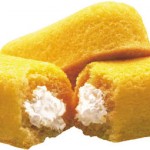‘Twinkies’ for Technical Writers, and Kids Rapped Up in Lyrics
Posted on March 21, 2013
Filed Under Communication, Education | Leave a Comment
This is only for kids in K-12 and their teachers, but it’s about, you might say, a form of technical writing, rap music. Turns out that The New York Times Learning Network has been holding an annual rap music-writing contest, and the 2012 winners were recently announced. We figure there will be another rap contest for 2013, so check for a Times’ listing around next November.
Meanwhile, Flocabulary, “an online learning platform that features educational songs, videos and resources for K-12,” has supplied a lesson plan and rubric for helping teachers guide their students “through the rap-writing process.” (These are from last year’s contest, but we doubt the methodology is changing all that much.)
 There’s a lot more scope, of course, in writing rap lyrics than technical procedures. The Times received 634 entries from 1,104 students, many of them participating in groups. “Many students mourned the possible loss of the Twinkie in their raps about the news of 2012,” The Times advises. Which led us to check on what actually happened there, and the buyers of the “snack cake” portion of the bankrupt Hostess Brands, Apollo Group Management and Metropoulos & Co., are aiming to have Twinkies back on the shelves by this summer. Something more to sing (chant?) about.
There’s a lot more scope, of course, in writing rap lyrics than technical procedures. The Times received 634 entries from 1,104 students, many of them participating in groups. “Many students mourned the possible loss of the Twinkie in their raps about the news of 2012,” The Times advises. Which led us to check on what actually happened there, and the buyers of the “snack cake” portion of the bankrupt Hostess Brands, Apollo Group Management and Metropoulos & Co., are aiming to have Twinkies back on the shelves by this summer. Something more to sing (chant?) about.
So spend the rest of 2013 burnishing up your rhythm and rhyming for this year’s rap music contest. You can have the staccato rhythms and would-be lyrics bouncing around in your head as you tour the plant on more pedestrian writing assignments. – Doug Bedell
What’s to be Read, With So Much to Read?
Posted on March 12, 2013
Filed Under Communication, Technology, The Writing Life | Leave a Comment
 Reading is important to writing, no less so if you’re a technical writer. Broad horizons and readiness of expression at whatever you write are greatly abetted by regular, indeed relentless, reading.
Reading is important to writing, no less so if you’re a technical writer. Broad horizons and readiness of expression at whatever you write are greatly abetted by regular, indeed relentless, reading.
It’s getting easier, and less expensive, than ever to become a self-priming reader. I, for example, have 30 either great or useful books on my iPad’s Kindle reader. From the Kindle store, they cost half, or less, than their hardbound price, and they can be underlined or annotated as though they have paper pages. I don’t know, for example, a bookstore at which I could have picked up William Zinsser’s “The Writer Who Stayed,” but it was available in an instant from the Kindle store. (Zinsser as a younger man and a writer for the New York Herald Tribune, knew my dad as a bank manager on Times Square and, when I was in high school, submitted for me a letter to the editor I had written that the Tribune published. This is meant not as any sort of disclaimer, but simply a formative memory.)
So as a regular writer (though in short, web-based takes), I was just a bit ago pleased to note consultant Kevin Eikenberry’s blog post on “Why You Should Read More Broadly and How to Do It”. Almost as I was just saying he writes, “Today there is far more quantity of reading materials (in more formats) available than ever before, and perhaps because of the proliferation and niche-ification (I know, I made up the word) of those materials, we read differently.”
One used to read mainly the classics. Today, Eikenberry notes, there’s a lot to read just in occupational categories and readers “would be hard pressed to keep up just in the strategy, leadership, management, change (or pick your sub genre) area alone.” So if you want to be a fully effective person nowadays, what’s to be read among all the choices available?
Eikenberry suggests several “food groups to add to what might be a bland, unbalanced and unhealthy personal reading menu.” Read fiction, he urges, “it gives your mind a break…” Read a classic, too, something you’ve always want to read, or have known you should. Read older books, “any master of a topic is a student of the past…” (Boy, is that true in these politically impacted times.) Read biographies, read history and read outside your industry. “…reading within your industry or discipline,” Eikenberry feels, “will never create a breakthrough idea.”
And read serendipitously, on the spur of the moment by picking up a new magazine at a newsstand or something a friend recommends. That way, surely, lies discovery, Eikenberry advises.
It all comes down to reading for surprise and self-enhancement. There’s more than ever readily available for profitable perusing, whether you’re in a technical field or not, so get at it, and stay with it. – Doug Bedell
Starting Young at What We Do
Posted on March 6, 2013
Filed Under The Writing Life | Leave a Comment
 You want to instill goals and ambitions into young people, say, your grandchildren? We thought so. With their aspirations in view (by you, if not yet them), you might want to equip them with this inspirational Zazzle baby’s T-shirt.
You want to instill goals and ambitions into young people, say, your grandchildren? We thought so. With their aspirations in view (by you, if not yet them), you might want to equip them with this inspirational Zazzle baby’s T-shirt.
We’re not selling them, just referring parent or grandparent Insights readers to a source of inspiration – for your youngsters, and for you, who will be paying their bills. Dennis Owen came up with it, actually. Nothing like inculcating aims and aspirations at the earliest opportunity!
But how do you ascertain that your youngster has promise as a technical writer and not a violinist? Hey, we just handle the writing. Answers to questions like that need to be sought elsewhere. – Doug Bedell
Recently
- Presentations With Forethought
- Technical Writing’s Lineage – Surely It’s Deeper than Digital
- At the Holidays, Twitting Amazon
- Successful Cookie Baking – From Mom, an Acknowledged Expert
- Slides for a Tech Writer’s Craft
- Digital or Not, Be Clear
- Being Watchful About Digital Designs…
- When Proposals Don’t Click, Keep Making Them Anyway
- Like a Good Gardener, Help an Enterprise Keep Itself Current
- We’re Leaders All, And Need to Think That Way
Categories
Archives
- January 2017
- December 2016
- November 2016
- October 2016
- September 2016
- August 2016
- July 2016
- June 2016
- May 2016
- April 2016
- March 2016
- February 2016
- January 2016
- December 2015
- November 2015
- October 2015
- September 2015
- August 2015
- July 2015
- June 2015
- May 2015
- April 2015
- March 2015
- February 2015
- January 2015
- December 2014
- November 2014
- October 2014
- March 2014
- February 2014
- January 2014
- December 2013
- November 2013
- October 2013
- September 2013
- August 2013
- July 2013
- June 2013
- May 2013
- April 2013
- March 2013
- February 2013
- January 2013
- December 2012
- November 2012
- October 2012
- September 2012
- August 2012
- July 2012
- June 2012
- May 2012
- April 2012
- March 2012
- February 2012
- January 2012
- December 2011
- November 2011
- October 2011
- September 2011
- August 2011
- July 2011
- June 2011
- May 2011
- April 2011
- March 2011
- February 2011
- January 2011
- December 2010
- November 2010
- October 2010
- September 2010
- August 2010
- July 2010
- June 2010
- May 2010
- April 2010
- March 2010
- February 2010
- January 2010